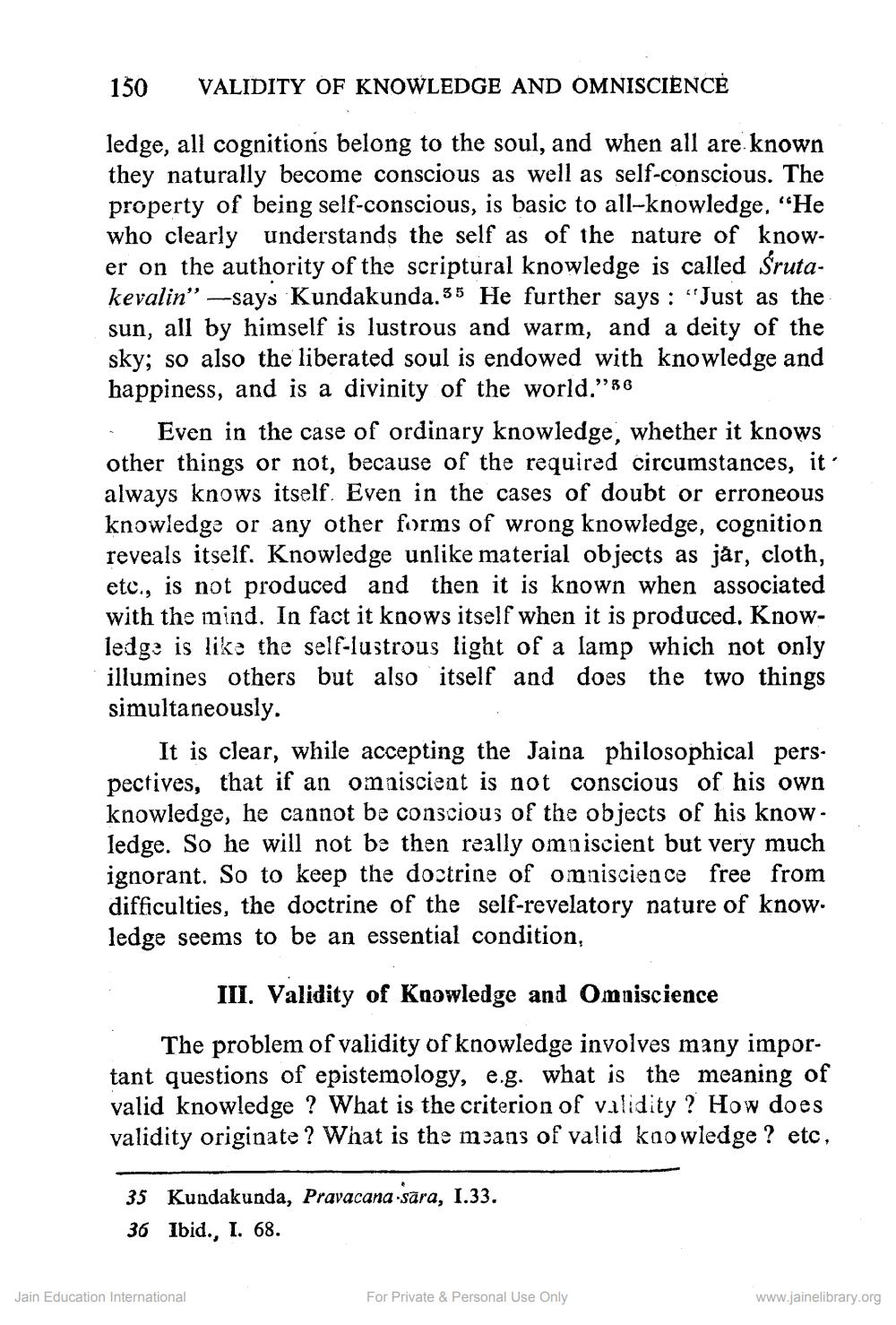________________
150
VALIDITY OF KNOWLEDGE AND OMNISCIENCE
ledge, all cognitions belong to the soul, and when all are known they naturally become conscious as well as self-conscious. The property of being self-conscious, is basic to all-knowledge. "He who clearly understands the self as of the nature of knower on the authority of the scriptural knowledge is called Srutakevalin" --says Kundakunda. 35 He further says : "Just as the sun, all by himself is lustrous and warm, and a deity of the sky; so also the liberated soul is endowed with knowledge and happiness, and is a divinity of the world.”86 • Even in the case of ordinary knowledge, whether it knows other things or not, because of the required circumstances, it' always knows itself. Even in the cases of doubt or erroneous knowledge or any other forms of wrong knowledge, cognition reveals itself. Knowledge unlike material objects as jár, cloth, etc., is not produced and then it is known when associated with the mind. In fact it knows itself when it is produced. Knowledge is like the self-lustrous light of a lamp which not only illumines others but also itself and does the two things simultaneously.
It is clear, while accepting the Jaina philosophical perspectives, that if an omniscient is not conscious of his own knowledge, he cannot be conscious of the objects of his knowledge. So he will not be then really omniscient but very much ignorant. So to keep the doctrine of omniscience free from difficulties, the doctrine of the self-revelatory nature of know. ledge seems to be an essential condition,
III. Validity of Knowledge and Omniscience
The problem of validity of knowledge involves many important questions of epistemology, e.g. what is the meaning of valid knowledge ? What is the criterion of validity ? How does validity originate ? What is the means of valid knowledge ? etc,
35 Kundakunda, Pravacana sāra, I.33. 36 Ibid., I. 68.
Jain Education International
For Private & Personal Use Only
www.jainelibrary.org




